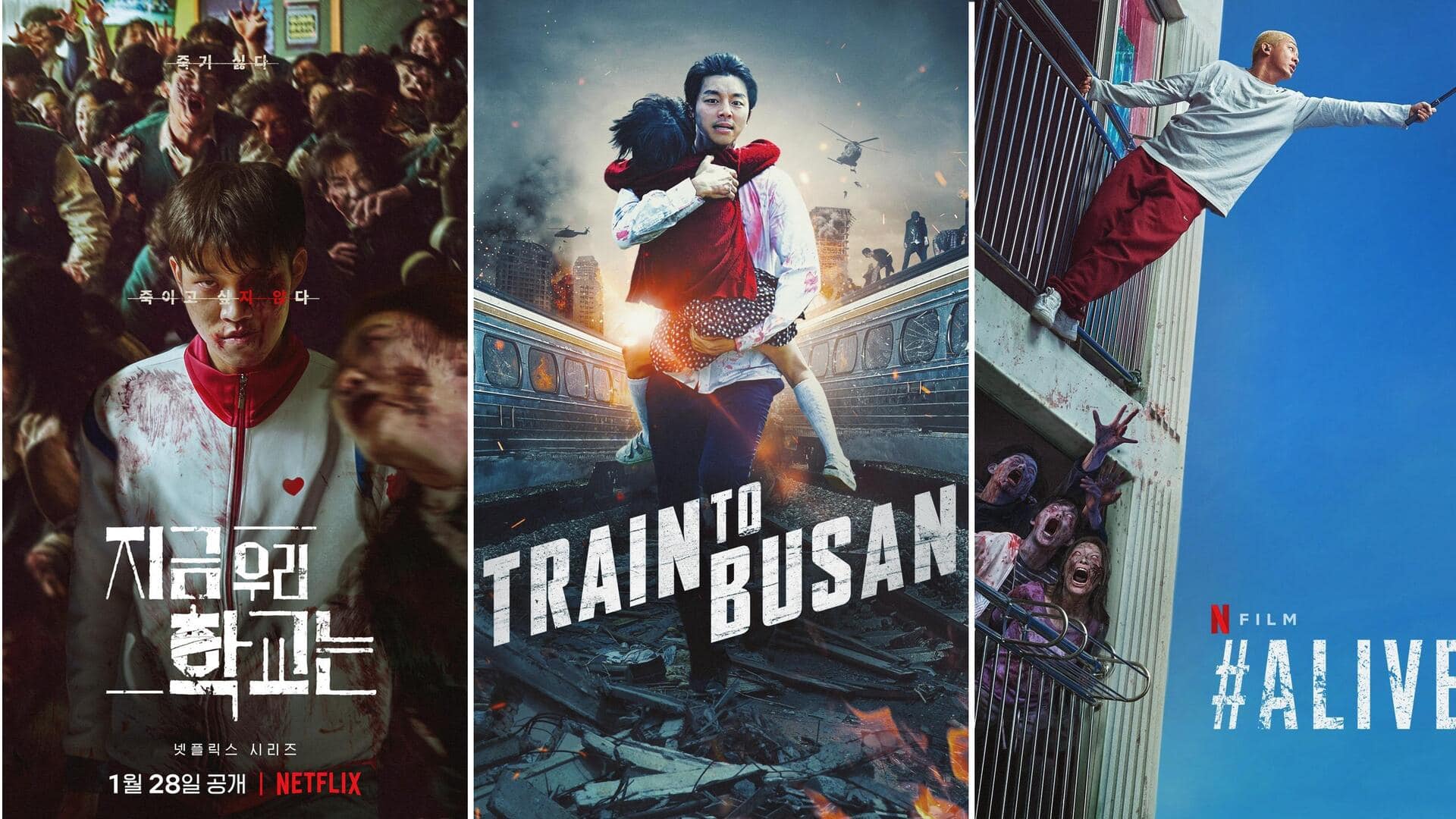
#NewsBytesExplainer: Decoding South Korea's passionate love affair with zombie films
What's the story
From Walking Dead to Twilight, Hollywood has an undeniable love affair with flesh-eating, undead creatures. However, Hollywood isn't alone in its adoration for zombies, as South Korea has emerged as a notable player, producing global blockbuster hits like Train to Busan, Kingdom, and the recent sensation, All of Us Are Dead. Let's decode how Korea has integrated gruesome films into its repertoire.
Surge of zombie films
'Train to Busan' led to surge of captivating zombie films
The first groundbreaking Korean zombie film was marked by the arrival of the 2016 thriller Train to Busan—directed by Yeon Sang-ho. The film's immense success—reflected by its staggering earnings of $98.5M—served as a catalyst for other Korean filmmakers to explore the zombie apocalypse. Hence, we can say that Train to Busan is responsible for the ongoing surge of zombie films in the Korean landscape.
History
But, what led Korea to discover zombies at all?
Train to Busan's director once revealed he got inspiration from the "West"—more specifically, from Danny Boyle's 28 Days Later. West is what led Koreans to discover zombies! Korea's first brush with zombies dates back to 1981 (Goeshi)—inspired by 1974's Spanish-Italian horror film Let Sleeping Corpses Lie. Sadly, the 1981 film didn't work. It wasn't until 2016 that zombies found prominence in Korean cinema.
Relatability
What makes K-zombies so relatable to Korean audiences?
The narratives shine bright in these otherwise abhorrent K-zombies—which usually center around crisis-related themes. The deep-seated concerns in Korean societies are related to the scarcity of resources, economic instability, and social disparities. The rapid transformation of individuals into zombies in films/series serves as a chilling reminder of the impending demise of humanity—and one can draw parallels with real-world events like the COVID-19 pandemic.
Social commentary
Is there any hidden social commentary in these zombie films/series?
For those who have seen the political K-zombie series Kingdom (2019), it's evident that the Kim Seong-hun-helmed show goes beyond its cataclysmic events. Inspired by a real-life outbreak during the Joseon period (Korea's last dynastic kingdom)—the series perfectly depicts themes of government mismanagement and societal privileges. It also showcases assaulting the weaker, survival-driven killings, and related themes, which serve as a potent social metaphor.
Reason
Why 'All of Us Are Dead' became another global hit?
The unwavering popularity of All of Us Are Dead (2022) cannot be ignored! A thrilling zombie outbreak in a high school dives deep into a myriad of contemporary societal issues. The story's underlying theme draws parallels to the tragic Sewol Ferry catastrophe that took place in 2014—in which among the 476 victims, around 250 students lost their lives due to the failed rescue efforts.
Recommendations
Meanwhile, here are the best K-zombies movies and series
If you are still new to the K-zombie genre, then here's a list of movies and series to watch to understand the deep metaphors hidden in the gruesome tales. This list includes films like Alive (2020), Seoul Station (2016), Peninsula (2020), Rampant (2018), and of course, Train to Busan (2016). In addition, watch Kingdom, All of Us Are Dead if you still haven't!